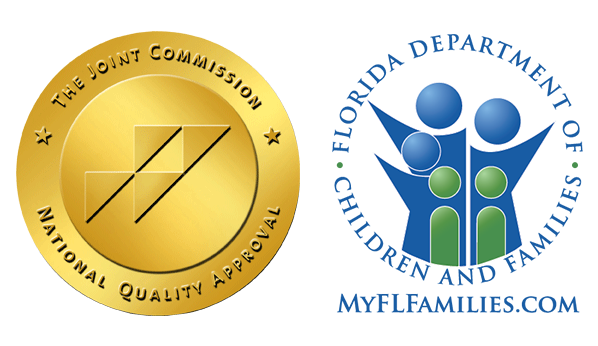Fentanyl is a potent synthetic opioid that is up to 100 times stronger than morphine. It is prescribed for severe pain management, particularly for cancer patients or those undergoing surgery. However, its misuse and illicit distribution have led to a significant increase in addiction and overdose cases. The side effects of fentanyl extend beyond the individual using it; they also profoundly impact the addict’s loved ones. The effects of fentanyl on both the individual user and their support network can be devastating.
Side Effects on the Individual
1. Physical Effects: Fentanyl use can cause numerous physical side effects, including:
- Drowsiness
- Dizziness
- Nausea
- Vomiting
- Constipation
- Respiratory depression
- Lowered blood pressure
These effects can impair the user’s ability to function normally, leading to difficulties in carrying out daily activities and compromising their overall health.
2. Psychological Effects: Fentanyl can affect an individual’s mental well-being. It may cause:
- Confusion
- Disorientation
- Hallucinations
- Mood swings
- Impaired cognition
These psychological side effects can impact the user’s relationships, work performance, and overall quality of life.
3. Risk of Addiction: Fentanyl is highly addictive, and regular use can lead to dependence and addiction. Continued use can result in tolerance, meaning higher doses are required to achieve the desired effects. This can increase the risk of overdose and other severe health consequences.
4. Overdose: Fentanyl is associated with a high risk of overdose, mainly due to its potency. Taking even a small amount more than prescribed or using illicitly obtained fentanyl can lead to an overdose. Fentanyl overdoses can be life-threatening and may result in respiratory distress, coma, and death if not treated promptly.
Impact on Loved Ones
1. Emotional Distress: The addiction and side effects of fentanyl can cause significant emotional distress for the addict’s loved ones. They often experience feelings of worry, anxiety, fear, and helplessness as they witness their loved one’s decline and struggle with addiction. The constant concern for their well-being and the unpredictability of the addiction cycle can take a toll on their mental health.
2. Strained Relationships: Addiction to fentanyl can strain relationships between the addict and their family members, friends, and partners. Trust may be broken due to the addict’s erratic behavior, lying, and manipulation. This can lead to feelings of betrayal, resentment, and anger within the support network.
3. Financial Burdens: The financial consequences of fentanyl addiction can be significant. Addicts may spend substantial amounts of money on acquiring the drug, leading to financial instability and strain within the family. Loved ones may find themselves facing financial difficulties and the need to cover expenses related to treatment and rehabilitation.
4. Caregiver Fatigue: Family members and friends often become primary caregivers for individuals addicted to fentanyl. The constant worry, monitoring, and emotional support required can lead to caregiver fatigue and burnout. The physical, emotional, and financial demands of supporting an addict can be overwhelming and impact the overall well-being of the caregiver.
5. Social Isolation: Families and friends of addicts may experience social isolation as a result of the stigma and shame associated with addiction. They may feel judged by others or be reluctant to seek support due to fear of being ostracized. This isolation can further exacerbate feelings of helplessness and hinder the recovery process for both the addict and their loved ones.
Turning to a Drug and Alcohol Rehabilitation Center in South Florida for a Fentanyl Addiction
When facing a fentanyl addiction, seeking professional help from a drug and alcohol rehabilitation center is essential for a successful recovery. The Beachcomber is known for its reputable treatment facility that offers specialized programs for individuals struggling with substance abuse, including fentanyl addiction. Here are some key reasons to consider turning to a rehab center in South Florida:
Specialized Treatment: Rehabilitation centers in South Florida often have programs specifically designed to address fentanyl addiction. These programs employ evidence-based therapies and interventions tailored to the unique needs of individuals grappling with the challenges of fentanyl dependency.
Medical Support and Detoxification:
Fentanyl addiction often requires a medically supervised detoxification process to manage withdrawal symptoms safely. Rehabilitation centers in South Florida have experienced medical professionals who can provide necessary support and ensure a comfortable and secure detoxification process.
Comprehensive Care:
Fentanyl addiction not only affects the physical health of individuals but also impacts their mental, emotional, and social well-being. The Beachcomber rehab offers comprehensive care that includes individual counseling, group therapy and family therapy approaches to address all aspects of addiction and promote overall recovery.
Peer Support and Community:
Joining an addiction rehab in Delray Beach, Florida, provides individuals with the opportunity to connect with peers who are also on the journey to recovery. Peer support and a sense of community can be instrumental in maintaining motivation and accountability and building a strong support network.
Aftercare and Relapse Prevention:
The Beachcomber South Florida will provide aftercare support and relapse prevention strategies to help individuals maintain their sobriety once they complete the initial treatment program. This may include ongoing counseling, support groups, and access to resources that foster a long-term recovery plan.
Therapeutic Environment:
South Florida’s warm climate, serene surroundings, and access to outdoor activities can contribute to a therapeutic environment that promotes healing and well-being. The calming and peaceful atmosphere at our facility at Delray Beach can enhance the recovery process, allowing individuals to focus on self-reflection and personal growth.
Turning to a drug and alcohol rehabilitation center in South Florida for a fentanyl addiction offers a multitude of benefits. Specialized treatment programs, medical support, comprehensive care, peer support, aftercare services, and the therapeutic environment are all crucial components that can aid individuals on their path to recovery. By seeking help from a reputable rehabilitation center in South Florida, individuals struggling with fentanyl addiction can access the resources and support needed to achieve and maintain a substance-free life.












